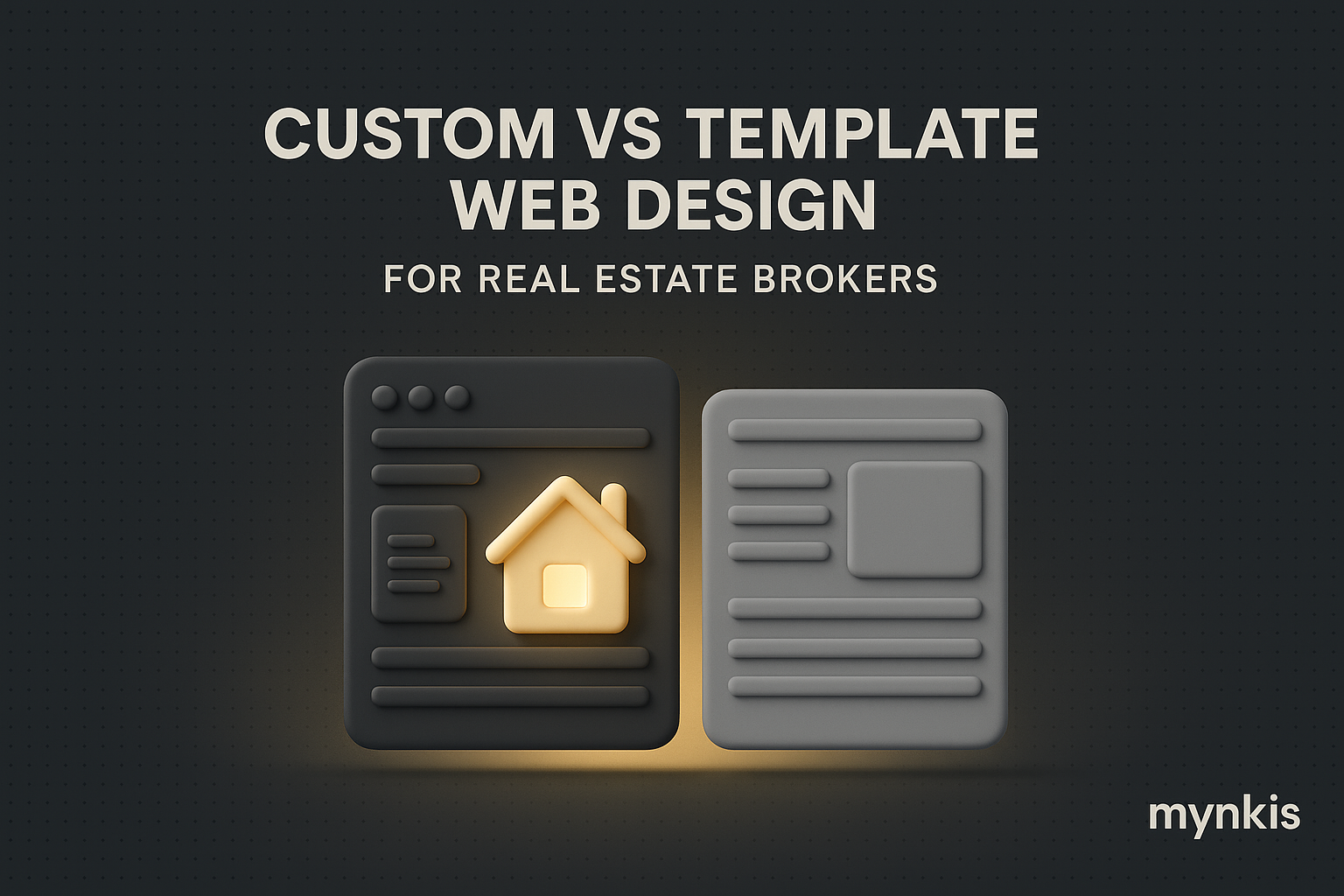Schedule a Demo
In my work with brokers who are continually refining their digital presence, the question of custom website design versus using templates frequently arises. Is the cost and effort of custom web development worth it, or does a well-chosen template suffice, particularly when equipped with SEO tools to enhance search rankings for local queries? Let's dive into the nuances of this decision.
I've encountered countless scenarios where brokers want to present their listings in a unique way. Custom website design allows for that bespoke touch that reflects your brand's personality and values perfectly. When you opt for a custom build, you aren't just getting a website, you are crafting an immersive digital journey for your clients. Every detail can be tailored to your brand, from the user interface (UI) to the user experience (UX) on mobile and desktop.
Moreover, with a custom site, we can integrate unique SEO features that align precisely with local query optimization. For instance, it's possible to engineer meta tags, local-specific SEO data input, and facilitate location-based service prioritization. With control over the backend, adding specialized tools like property filters, visual mapping, or even algorithms that promote high-value properties in search results can be seamless. Though sophisticated, this process can notably enhance the performance of your property listing site on local searches, but it comes with its complexities and costs.
Let's acknowledge the fact that time is a critical factor for any growing business. Templates, with their ready-to-launch frameworks, allow you to go live quickly. I've seen many brokers succeed with high-quality templates from reputable providers like Squarespace or Wix, which come loaded with SEO-friendly features.
Templates designed specifically for real estate often include layout options tailored to property listings, search engines optimization tools, and integration with social media for enhanced reach. This does, however, have its limitations. While you can tweak colors, rearrange some elements, and insert your branding, there's still a ceiling to how much you can individualize without disrupting the pre-set framework designed for broader appeal.
The challenge with templates often lies in differentiation. If numerous brokers within the same market are using the same template, individual listings can become part of the digital homogenization, making it challenging to stand out and climb the search engine results pages (SERPs) effectively.
The stakes are high when it comes to local SEO performance as it directly correlates with traffic to your listing website. Custom development leads to an unfettered ability to fine-tune every aspect of on-page SEO. This can include everything from breadcrumb navigation specifically geared towards your location-based listings to meta descriptions that resonate with local query terms.
As we tailor the site's structure, we have greater flexibility to run specialized pages designed for rapid indexing by Google, tailor-fitted schema markup for properties, and geo-targeted local SEO capabilities—with each of these driving intense relevance for your local queries.
While templates may feature SEO tools, the level of customization and deployment is typically only 'adequate'. I've worked with team members who, when configuring templates, hit a wall where the optimization had to be balanced with the platform's inherent constraints. The customization is mostly superficial—perfect for those looking to get online quickly, but less so for those wanting fine-toothed SEO integration and control.
Brokerage is a growth-oriented business, and your digital platform must grow with you. With a custom design, I've empowered clients to add features as needed. Whether they wanted to integrate a new CRM system for managing leads better or introduce dynamic pricing mechanisms tailored to the seasonality of the market, the scalability of a custom website makes such expansions seamless.
In contrast, templates often require extensive overviews before new integrations are possible, if possible at all. Over time, this can lead to less adaptability, forcing a complete redesign when a simple evolution would have sufficed.
Based on available research, individual results may vary, but for those dedicated to leveraging search engine rankings for local queries to the maximum, a custom website might be more effective. The debate is less about which is absolutely better and more about what fits within your strategy, resources, and business objectives.
Is brand distinction critical in your marketplace? Is pinpoint local SEO the gateway to achieving peak performance, or is being functional, aesthetically pleasing, and online quickly the primary goals? Have a talk with professionals in the web development and SEO fields if you're unclear; they can clarify the limitations and possibilities specific to your context.
